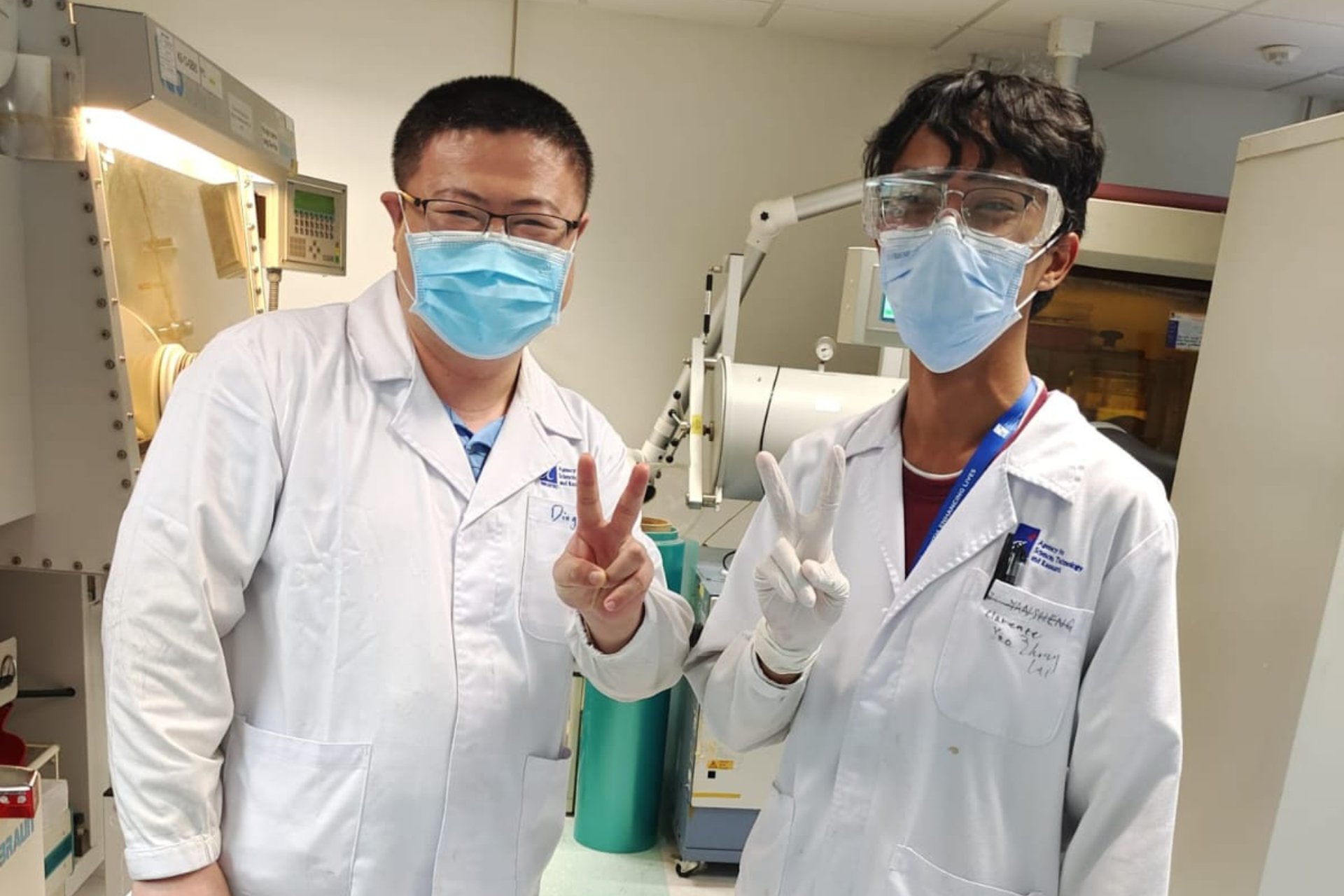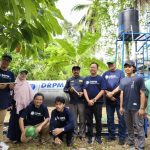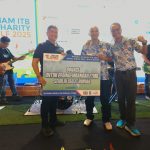Naufal’s Story: Master’s Student in Material Engineering Develops Anode-Free Battery at IMRE, Singapore
To support its students in developing practical skills, expanding academic knowledge, and preparing to enter the workforce or pursue further studies, FTMD offers its students the opportunity to undertake internships, which can include research. One such student is Naufal Hanif Hawari, a Master’s student in Material Engineering, who had the chance to intern at the Institute of Materials Research and Engineering (IMRE) under A*STAR (Agency for Science, Technology and Research), Singapore.
From May to September 2022, Naufal was involved in research on local lithium batteries. This research aligns with his research at the Materials Electrochemistry Laboratory (MEL) at ITB’s Material Engineering, focusing on lithium-ion battery (Li-ion) development.
The MEL laboratory at ITB, where Naufal conducted his master’s research, is well-equipped with material characterization equipment and facilities. However, the opportunity to research and intern abroad is a golden opportunity not to be missed. He believes this will be a valuable experience providing new knowledge for him.
A Fast and Accurate Work Culture
During his internship at IMRE, Naufal had the chance to work in a diverse team, learn from professionals, and observe Singapore’s efficient work culture. He greatly appreciated the strong team collaboration, working alongside experts in their fields, teaching him to adapt to various work styles.
Naufal was very impressed by Singapore’s work culture. The fast and accurate work culture, supported by comprehensive facilities, significantly advanced his research. He learned to manage his time efficiently for research activities and to compile reports finely. Additionally, Naufal had the opportunity to learn about new equipment he hadn’t encountered before, such as X-ray photoelectron spectroscopy (XPS), which is not available in Indonesia. This experience enriched his research skills substantially.
The internship experience in Singapore not only broadened Naufal’s knowledge and research skills but also gave him insights into different work cultures worldwide. He valued the efficiency and accuracy characteristic of Singapore’s work culture. All of this helped Naufal develop his research skills in unexpected ways, and this experience would leave a lasting impact on his future professional journey.
Initially, Naufal felt insecure among the researchers there. However, any doubts vanished when he was warmly welcomed by his laboratory colleagues. They gladly engaged him in discussions and knowledge sharing. This significantly boosted his confidence, and over time, any fear and doubt he felt has faded. He felt supported and motivated by the collaborative atmosphere in this research environment.
Research Topic Selection
Given the increasing battery demand in Indonesia, from electronics to electric vehicles and renewable energy storage systems, the Indonesian community will highly depend on rechargeable batteries with high energy density and reliable performance. Through his research, Naufal hopes to offer efficient and eco-friendly solutions and address the need for skilled battery professionals in Indonesia.
Driven by this noble goal, Naufal’s research journey began when he was approached by Dr. Ding Ning, his mentor in Singapore. He also had extensive readings and discussions with Dr. Ding Ning and Ms. Afriyanti Sumboja Ph.D., his advisor at Material Engineering ITB. Through intensive discussions, he planned and executed the correct research steps. His primary research focused on creating anode-free lithium-ion batteries, which use a plating and stripping Li metal mechanism during charging and discharging. Using this battery type, he has the potential to achieve double or even more capacity than current conventional batteries.
In his research, Naufal found that the electrolyte base choice for anode-free batteries differs significantly from existing commercial Li-ion batteries. When the battery is first charged, the electrolyte decomposes and forms a thin film called a solid electrolyte interphase (SEI). The formation and composition of this SEI have a significant impact on battery life, especially concerning anode-free batteries.
In his study, Naufal used Lithium difluoro(oxalate)borate (LiDFOB) as the electrolyte component. Using this electrolyte, he achieved an SEI layer rich in inorganic elements, making the layer more stable and resistant to damage during the charging and discharging process. The positive impact of this electrolyte choice is evident in battery performance, with anode-free batteries having a longer lifespan compared to commonly used commercial electrolytes.
After completing his internship and master's degree, Naufal plans to intern at SNU, Korea. He is keen to pursue Ph.D. studies, focusing on lithium-ion battery research. Naufal also hopes to deepen his understanding and skills in this field and contribute to the development of more advanced and efficient battery technology, especially in Indonesia.
(written by M Bintang Alriza)
(edited by Ainayya Azzahra)







